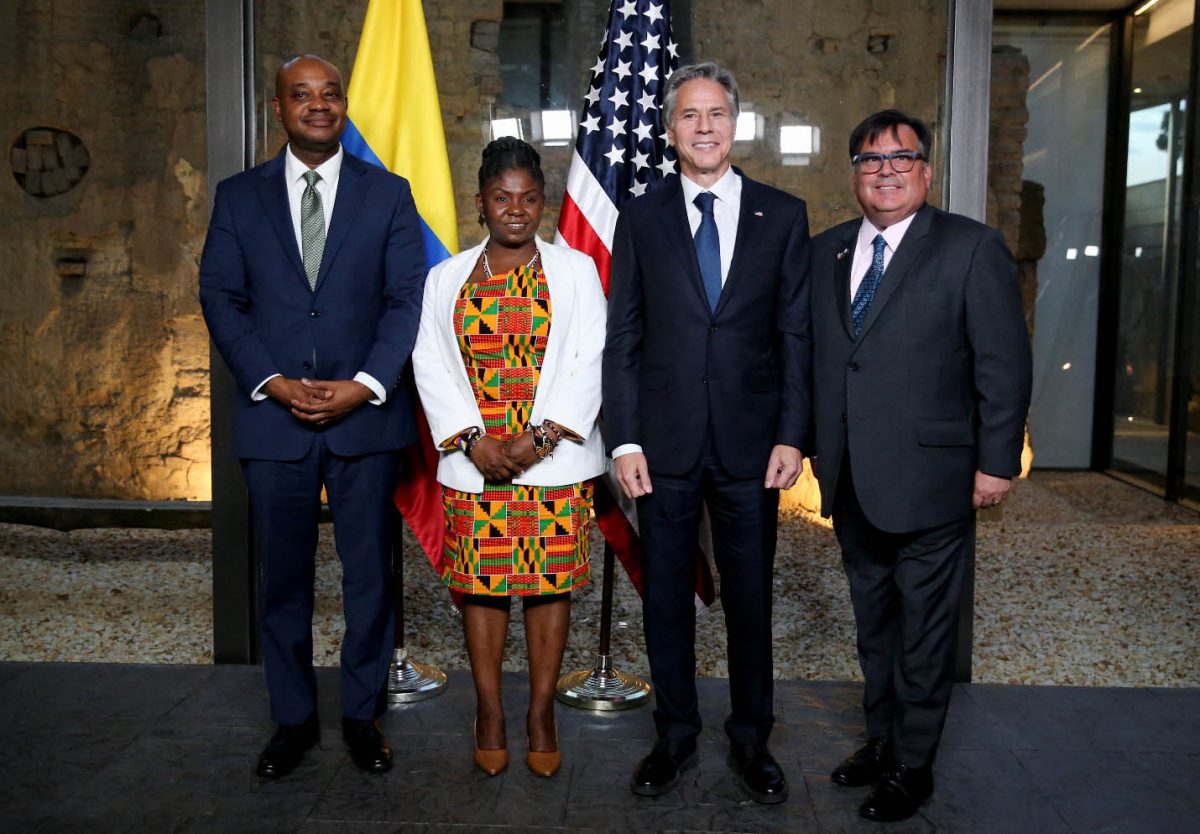BOGOTA, (Reuters) – Colombian President Gustavo Petro and U.S. Secretary of State Antony Blinken said yesterday they discussed stepping up the interception of narcotics at sea and enhanced intelligence sharing on drug trafficking.
Leftist former rebel Petro, who hosted Blinken in Bogota, has derided the U.S.-led war on drugs as a failure and called for a new international approach.
In a news conference after their meeting, Petro said priorities were the interdiction of drugs before they are shipped out of Colombia and going after those who run the trade, who he said were likely to be not in Colombia’s jungles but in Bogota, Medellin, Miami and even New York.
Blinken said the two sides were “largely in sync” on the approach to drug trafficking and said Petro put “concrete ideas on the table” during the talks, although it was unclear if any agreement had been reached.
The two sides are “looking at doing more in terms of interdicting drugs that are moving on the seas by boat, as well as enhancing even more our intelligence sharing to go after those who are responsible for drug trafficking,” Blinken said.
Blinken is on a week-long trip to Colombia, Chile and Peru, which all have relatively new leftist leaders.
Petro also repeated criticism of Colombia’s agreement with Washington on the extradition of drug traffickers. He has proposed that traffickers who comply with government surrender conditions and abandon the trade not be extradited to face charges abroad.
Blinken responded that extradition between the two countries had benefited justice and the victims of transnational crime.
“It’s one important tool to help dismantle the transnational criminal organizations that do so much damage to both of our societies. And we’ll continue to work closely together on this,” Blinken said.
Petro reiterated criticism of Cuba’s continued inclusion on the U.S. list of state sponsors of promoting terrorism as “an injustice,” decrying the fact that the decision by former U.S. President Donald Trump to place Cuba back on the list has not been corrected.
Cuba hosted peace talks between the government of former Colombian President Juan Manuel Santos and the now demobilized FARC guerrillas.
“That is called an injustice and while in my opinion it isn’t up to us, it should be corrected,” Petro said.






